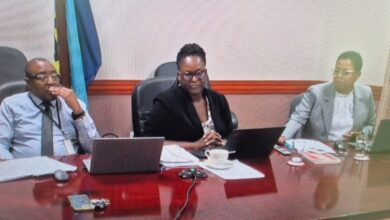The Caribbean Community (CARICOM) is updating its tax treaty to align it with international standards and rules.
“The CARICOM Council for Finance and Planning (COFAP) recognises the importance of tax cooperation and the shifts in the international tax landscape and decided that the CARICOM Tax Treaty should be updated to accommodate the international tax standards and rules that CARICOM Member States have committed to adopt over time.
With the support of the OECD, we have started to update the Treaty and have recently finalised the Protocol that would incorporate provisions to exchange information for tax purposes and for dispute settlement,” Ms. Evelyn Wayne, Director, Economic Policy and Development at the CARICOM Secretariat said.
Ms. Wayne was speaking at the opening session of a two-day virtual seminar on 19 March 2025, that was held to examine the changing international tax landscape and its impact on CARICOM. The CARICOM Secretariat, Caribbean Organisation of Tax Administrators (COTA), Organisation for Economic Cooperation and Development (OECD) Centre for Tax Policy and Administration, Commonwealth Association of Tax Administrators, International Monetary Fund (IMF)/ Caribbean Regional Technical Assistance Centre (CARTAC), and the World Bank Group, collaborated to hold the webinar.
Twenty-one Caribbean countries fielded more than 200 participants from the regional tax and finance sectors to the virtual seminar. They discussed fighting tax and other financial crimes, and transforming tax administration, among other subjects.
According to Ms. Wayne, this activity aimed to take stock of developments in the international taxation landscape and continue the conversation on how CARICOM Member States can beneficially adopt and adapt the new tax standards and rules given CARICOM’S unique circumstances. One of those circumstances, she said, was the involvement of most CARICOM Member States in creating a single market and economy which requires the adoption of common rules for the non-discriminatory treatment of CARICOM nationals and their businesses.
She reflected on the unique Intra-CARICOM Double Taxation Agreement which preceded the decision to form a CARICOM Single Market and Economy (CSME), noting that the instrument initiated a course of tax cooperation and benefit-sharing as one of the foundation principles of CARICOM economic cooperation and integration.






